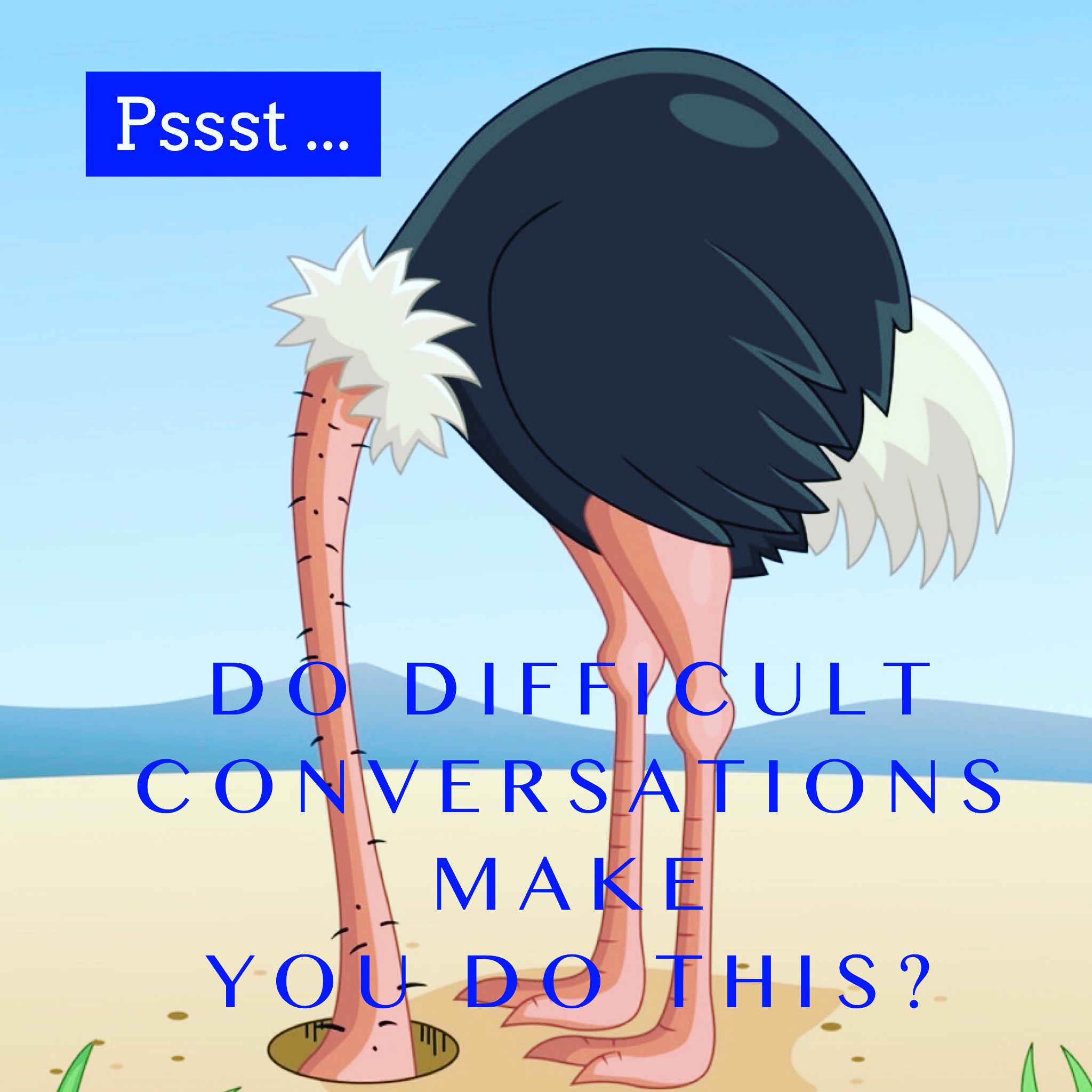If you’ve ever been on the receiving end of this statement, you know how uncomfortable it can be.
Even when the intention is genuine, this ominous preamble can create anxiety, defensiveness and emotional shutdown, the kind that makes the atmosphere between two people more contentious than collaborative. There are more constructive, neutral conversation openers that can go a long way toward meaningful conflict resolution.
Conversations deemed difficult are like a complex dance where every step holds the potential for misunderstanding, frustration, or growth. As a psychotherapist, I’ve often witnessed that the ways in which people attempt to talk about delicate matters often makes the original problem worse. The escalation or the resolution rests in HOW things get discussed. In this exploration, let’s dive into the nuances of navigating these tricky dialogues, understanding that they are not roadblocks but gateways to deeper connections.
Embrace the Discomfort
One of the paradoxes of human interaction is that the most uncomfortable conversations can lead to the most profound growth. It’s in these moments of discomfort that true understanding can emerge. Instead of avoiding these talks, embrace the discomfort as a signal that something important is at stake. Let the other person know you want to collaborate in finding a solution that feels right to both of you. Try saying, “I’d like for us to try to iron out our disagreement in a way that feels fair to both of us.”
The Power of Active Listening
In the realm of difficult conversations, active listening becomes a beacon of light. As a therapist, I’ve seen the profound impact of truly hearing someone, not just the words they say but the emotions they convey. Practice the art of listening without immediately formulating a response. It’s in the pauses that understanding often finds its voice.
Choose Your Words Thoughtfully
Words have immense power. In the crucible of a challenging conversation, your choice of words can either escalate tensions or create bridges. Think about the impact your words might have on the other person. Consider using “I” statements to express your feelings and concerns, fostering an environment of shared responsibility. Sarcasm, defensiveness, cross attacking, and the silent treatment are all conversation busters.
Cultivate Empathy
Empathy is the secret sauce in any conversation, especially the difficult ones. Strive to understand the other person’s perspective, acknowledging their emotions and experiences. This doesn’t mean you have to agree, but understanding lays the groundwork for meaningful dialogue.
Navigate, Don’t Dictate
Avoid the temptation to control the conversation. Instead, think of it as a shared exploration. It’s not about proving a point but finding common ground. The goal is mutual understanding, not necessarily agreement. The key here is to be more curious than right.
Recognize Patterns of Communication
As a therapist, I often work with individuals to identify patterns in their communication. Be mindful of recurring themes or behaviors in your difficult conversations. Are you prone to putting up a wall? Does overall avoidance take the lead? Recognizing these patterns is the first step toward changing them.
It’s Okay to Press Pause
Difficult conversations can be emotionally charged. If you feel the conversation spiraling, it’s okay to press pause. Sometimes, a temporary break can prevent further escalation, allowing both parties to regroup emotionally before continuing. “Why don’t we come back to this when we’ve both taken some time to reflect?”
In the intricate dance of difficult conversations, remember that it’s not about avoiding conflict but navigating it with intention and skill. As a psychotherapist, I encourage you to see these conversations not as obstacles but as opportunities for personal and relational growth. Embrace the discomfort, lean into empathy, and let the dance unfold—one step at a time.

